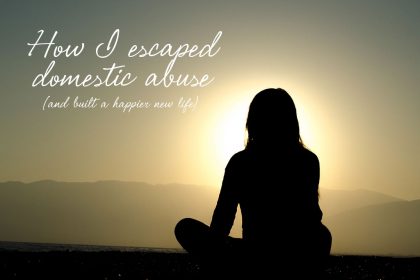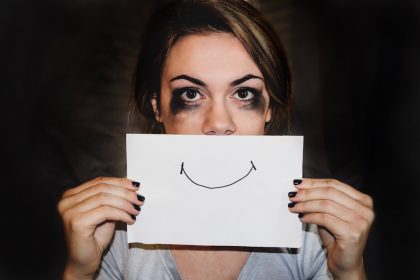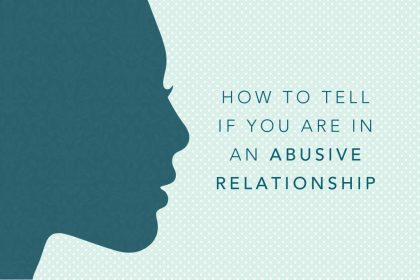“Me too” – how women are finally speaking up against sexual abuse
The Harvey Weinstein scandal has highlighted the shockingly common abuse of women by men in power. But finally women are speaking out.
There probably wasn’t a woman in the land who was genuinely shocked at the public outing of Harvey Weinstein last week. And while many men agreed he was a sleaze ball, many also probably wondered what else you’d expect in that industry.
Rightfully people and businesses are separating themselves from the scandal. Goldman Sachs are even considering ending their investment in the Weinstein company because of the public outrage. Yet how certain are they that nothing like this is happening in their own company?
I don’t know any woman who hasn’t been assaulted
I’m 51 years old and don’t know any woman that hasn’t been both sexually assaulted and sexually harassed – on many occasions. It often starts about the age my youngest daughter is now (11/12yrs old) when sleazy men follow you down the street in your uniform often unchallenged by anyone else. Or boys or men touch you up on the bus or the tube.
And because it’s happened to all your friends you think it’s normal.
I’ve known many powerful men like Harvey Weinstein behaving in that way, and many equally powerful men protecting and condoning the behaviour by turning a blind eye to it. I know perfectly ordinary men who find his behaviour shocking, but will have done more than their fair share of ‘chatting women up’, making comments etc, which all contributes to the culture of women being treated like sex objects and unequal to men.
These instances can happen anywhere and come from people you trust and least expect. It’s not just limited to the entertainment industry or high-powered corporate world, it’s a prevalent issue in all industries and social circles.
It is nowhere and everywhere because sexual harassment is unconstrained by space or location; it roots from power dynamics, societal norms, and human behavior, Sam Dordulian, a sexual assault lawyer in Los Angeles, says. For example, in workplaces, people with superiority take advantage of their authority to blackmail and make a huge mess between professionalism and personal boundaries.
Schools may see bullying or exploitation as harassment, in which their students or staff may feel helpless to resist. In social gatherings, too, one or another person may be subjected to unwanted attention or advances, sometimes condoned as “harmless fun.” Sexual harassers often exploit positions of authority or trust. This abuse of existing relationships can make the harassment especially jarring and difficult to address.
There were also cases that took place in spa centers. An experienced massage sex abuse lawyer can help any victim get justice in such cases. Their involvement means that no one is above the law and everyone should be held accountable for their actions.
My experience as an HR professional and a woman
During my long career in HR, here is a flavour of what I’ve seen other women suffer and also what has happened to me personally:
A man turned up to a new client meeting with a red rose ‘I saw your picture online and knew we’d get on’…
Joining a new organisation a file was drawn to my attention by my new team. A Desk Assistant was sent an email from her very drunk boss, copying in the entire company, which was extremely sexually explicit and ended in “………YOU FAT UGLY SLAG”. The Company decided that as he was so drunk they would merely file the email and take no action unless he did it again. He remained her boss.
A young female assistant attended a corporate entertainment event for clients. Everyone stayed in a hired house. She woke to find a naked male client in bed with her, his erection digging into her back. He claimed he had lost his way back from the toilet. No action taken but she was ‘paid off’ after having a breakdown.
At my first ever corporate event working as a young trainee in a large financial services company, a Director called me to one side and informed me: ‘I like tall women – I can start at the bottom and work my way up”.
A woman came to me and asked to be moved away from her male boss. He constantly made inappropriate sexual comments to her and she dreaded working for him. The organisation was large and she was moved. He was then promoted despite the senior male team being informed of this. The in-house employment lawyer when consulted said he’s done this before but ‘it’s not my place to say anything’.
A Senior Director followed me home from work when drunk and physically assaulted me. He picked me up and shook me and threw me against some metal railings. He admitted this and his punishment was ‘equality training’ run by my team and to apologise to me. He sent me flowers. I was then made redundant and he remains in the City.
Travelling from London Bridge to East Croydon in a carriage full of men, a man sat opposite me and blocked my exit with his leg. He then proceeded to masturbate in front of me. All the men in the carriage, young and old looked the other way. All those men with wives and girlfriends and mothers and daughters and sisters. They all looked the other way.
Why didn’t I take any action?
You might be reading this and wondering why in some of those situations I didn’t take action. I assure you I did what I could, but you can only go so far if you are a lone voice and in a male dominated environment. You want and need to work, but the system is such that you must do whatever your boss asks you to do (within reason).
Sort out problems, not create them is how someone once put it to me. If you don’t you are labelled as ‘difficult’ and fired. HR professionals in the workplace aren’t in any way independent, despite the high ethical standards of the CIPD. That’s one of the reasons I made the decision to work independently eight years ago.
What does the law say?
The law (The Equality Act) is very clear that any unwanted conduct of a sexual nature in the workplace is harassment, and behaviour like that to any woman is unacceptable. The penalties are high if a woman is brave enough to go to an Employment Tribunal; the compensation is potentially unlimited.
However doing so may blight your career, and so generally it tends to be very senior women doing so. In these cases the compensation is significant, and often the woman intends to change direction (and has a partner who can support them during the long, expensive and public process).
Some behaviour towards women is criminal. When I was physically assaulted, I should have gone to the police. But I didn’t because I was too shaken up by the experience, scared of the establishment and I was, at the time, a single mother. If I wasn’t out of time, I would do something now, but it happened in 2002.
What should women do when they experience this?
Women need the support of each other and sympathetic men to challenge this behaviour. If it happens to you, make a record of what has happened, and challenge the individual or talk to someone else.
Don’t put up with it silently. If you leave because of it, tell the company. If you are in a union they will get involved. If you have the support of an independent HR consultant they can help you raise a individual or collective grievance which the company has to investigate. Ask for help. If you see something say something.
Why take action?
If women and men take action now, we can start creating an environment where women can work free from sexual harassment and assault. Imagine that! A workplace free of sexual harassment. That would be a big step on the road to equality.
When I was physically assaulted a very senior director in the parent company got to hear about it and personally paid for me to see his lawyer to make an Employment Tribunal claim against a company he had responsibility for. I didn’t follow it through because I knew as an HR professional I’d never work again, and getting legal isn’t always the right approach as it can break individuals without the right support at home.
I also knew first hand how aggressive and unfair that company was. However it touched me at the time and still does. Someone noticed and someone cared.
If we want our daughters and sons to experience a world that does not tolerate the daily sexual assault and harassment of young girls and women, we have to take action. If you too have experienced unwanted sexual attention or assault in your life take action now to stop it. Directly or by influencing those around you.
Doing nothing condones our children to an unequal world where men and women are treated differently. Together we can challenge and change this.
Ruth Cornish (FCIPD) is an independent HR consultant and runs Amelore a Coaching and HR consultancy.










